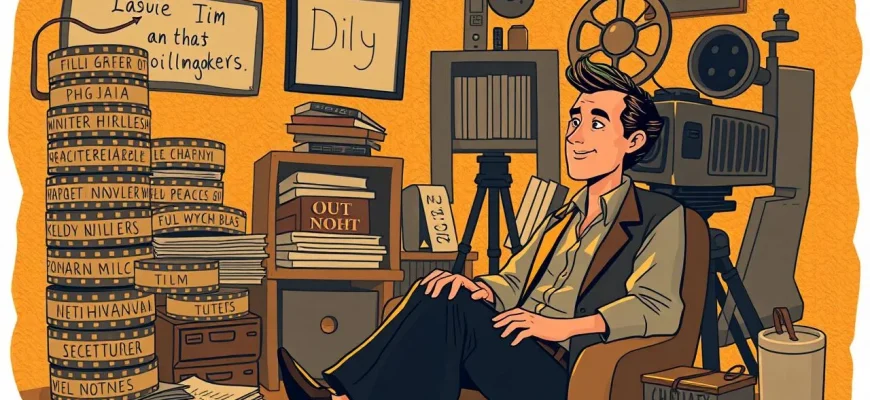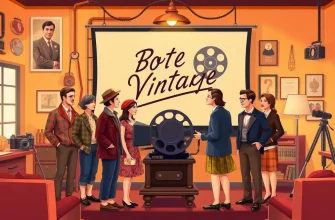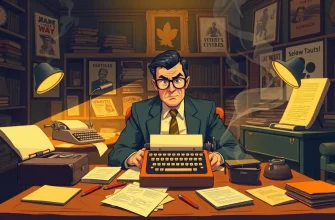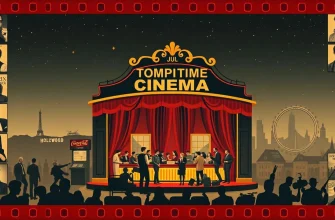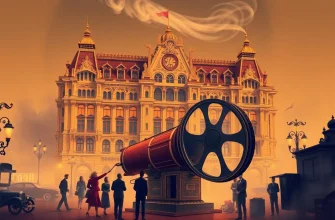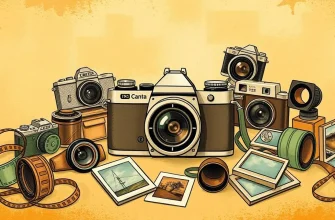Embark on a cinematic journey through the lens of those who craft the stories we love. This curated collection of drama films delves into the tumultuous lives, creative struggles, and personal triumphs of filmmakers. Each film offers a unique glimpse into the world of cinema, showcasing the passion, dedication, and sometimes the darker side of the filmmaking process. Whether you're an aspiring director or simply a film enthusiast, these movies provide both inspiration and a deeper understanding of the art of storytelling.
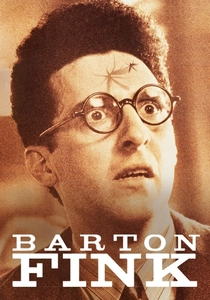
Barton Fink (1991)
Description: The Coen Brothers' exploration of a playwright's descent into madness while trying to write a B-movie script in Hollywood. It's a dark comedy about artistic integrity and the commercial pressures of the film industry.
Fact: The film won the Palme d'Or at the Cannes Film Festival.
 Watch Now
Watch Now
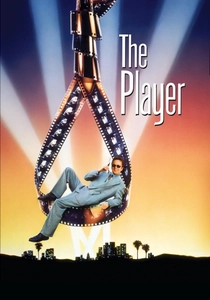
The Player (1992)
Description: Robert Altman's satirical look at Hollywood, focusing on a studio executive who becomes embroiled in a murder plot. It's a sharp critique of the film industry's inner workings and the lengths people go to for success.
Fact: The opening shot is a continuous six-minute take, showcasing Altman's directorial prowess.
 Watch Now
Watch Now
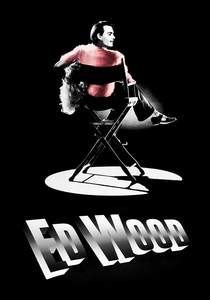
Ed Wood (1994)
Description: Tim Burton's tribute to the infamous B-movie director Ed Wood, known for his low-budget, campy films. The movie captures Wood's unyielding optimism and his unique approach to filmmaking, despite his lack of talent.
Fact: Johnny Depp's portrayal of Ed Wood was critically acclaimed, and the film won two Academy Awards for Best Supporting Actor (Martin Landau) and Best Makeup.
 Watch Now
Watch Now
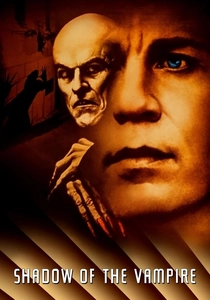
Shadow of the Vampire (2000)
Description: This film reimagines the making of "Nosferatu," suggesting that the actor playing the vampire was an actual vampire, exploring the blurred lines between art and reality in filmmaking.
Fact: Willem Dafoe's performance as Max Schreck earned him an Academy Award nomination for Best Supporting Actor.
 Watch Now
Watch Now
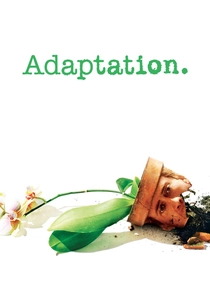
Adaptation (2002)
Description: A meta-narrative about screenwriter Charlie Kaufman's struggle to adapt Susan Orlean's book "The Orchid Thief" into a screenplay. It's a film about the creative process, writer's block, and the art of storytelling itself.
Fact: The film features Nicolas Cage in a dual role, playing both Charlie Kaufman and his fictional twin brother Donald.
 Watch Now
Watch Now
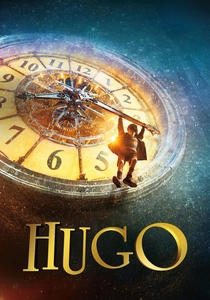
Hugo (2011)
Description: While primarily a family film, "Hugo" pays homage to the early days of cinema and the pioneering filmmaker Georges Méliès, exploring themes of creativity, loss, and the magic of movies.
Fact: The film won five Academy Awards, including Best Cinematography and Best Visual Effects.
 Watch Now
Watch Now
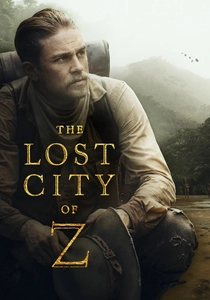
The Lost City of Z (2016)
Description: While not exclusively about a filmmaker, this film captures the spirit of exploration and obsession akin to that of a director, focusing on Percy Fawcett's quest for a lost city in the Amazon.
Fact: The film was shot on location in Colombia, providing an authentic backdrop to the story.
 Watch Now
Watch Now

My Week with Marilyn (2011)
Description: While not directly about a director, this film focuses on the relationship between Marilyn Monroe and a young assistant director during the filming of "The Prince and the Showgirl," offering insight into the pressures of filmmaking and the personal lives of those involved.
Fact: Michelle Williams received an Academy Award nomination for her portrayal of Marilyn Monroe.
 Watch Now
Watch Now
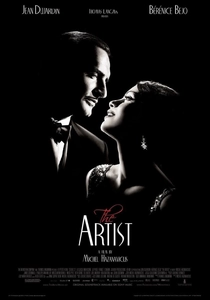
The Artist (2011)
Description: A love letter to silent films, "The Artist" follows a silent film star struggling to adapt to the advent of talkies, capturing the essence of the transition in cinema history.
Fact: It won five Academy Awards, including Best Picture, becoming the first silent film to win since
 Watch Now
Watch Now

The Disaster Artist (2017)
Description: This film tells the story of Tommy Wiseau, the enigmatic director behind the cult classic "The Room." It's a heartfelt and humorous look at the making of one of the worst films ever made, highlighting the bizarre yet endearing relationship between Wiseau and his best friend Greg Sestero.
Fact: James Franco, who directed and starred as Tommy Wiseau, won a Golden Globe for his performance. The film was adapted from Greg Sestero's memoir of the same name.
 Watch Now
Watch Now

